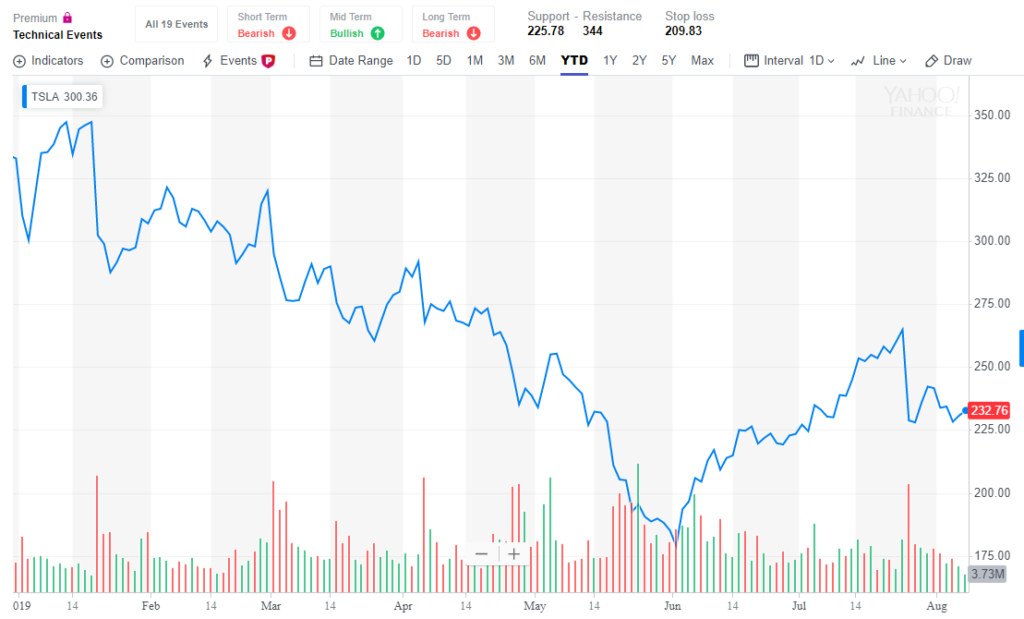The federal government is aiming … again … at Tesla and its embattled CEO, Elon Musk.
This time, the U.S. National Highway Traffic Safety Administration is taking issue with claims made by the electric car manufacturer and its Model 3, and sought additional information following several crashes, including a March 1 crash that resulted in a fatality.
According to documents obtained by the website PlainSite.org and released Wednesday, the NHTSA took issue with an October 2018 blog post by Tesla stating the car had “the lowest … probabilities of injury of all cars ever tested” by the NHTSA.
The NHTSA issued a cease and desist request to Tesla in October 2018, asking the company to stop making the safety claims. Additionally, the agency referred the matter to the Federal Trade Commission’s Bureau of Consumer Trade Protection “to investigate whether these statements constitute unfair or deceptive acts or practices.”
Apparently, according to documents, Tesla failed to comply with the NHTSA’s guidelines on conveying accurate information of the agency’s tests, not once … but twice.
Bloomberg reported it wasn’t the first time Tesla took test results out of context for advertising.
In 2013, the automaker suggested its Model S earned 5.4 stars on its safety score.
The biggest issue with that is, the NHTSA doesn’t score that high.
The NHTSA said the claims made in the 2018 blog post from Tesla “mislead consumers about the relative safety of different vehicle models.” The agency went on to say the tests “cannot determine whether a Model 3 would fare better in a real-world frontal collision with, for instance, a significantly heavier SUV.”
Tesla’s deputy general counsel, Al Prescott, responded to the agency’s cease and desist request, stating the NHTSA is singling out Tesla as other manufacturers made even loftier claims of “10 and 20 stars” around the same time Tesla claimed a 5.4-star rating.
“Tesla’s statements are its own, are based on sound public data, and do not contravene NHTSA’s guidelines,” he wrote in an Oct. 31 response. “Based on the foregoing, we do not see a reason to discontinue use of our safety blog or these statements as long as no other vehicle surpasses the Model 3 Long Range RWD’s Vehicle Safety Score and overall probability of injury.”
In addition to safety claims, according to documents from PlainSite, the NHTSA asked Tesla for additional information surrounding several crashes involving the Model 3, including a fatality crash in March.
The crash resulted in the death of the driver of the Model 3 after it collided with a tractor-trailer following the engagement of the car’s Autopilot function in Delray Beach, Florida.
The family of the decedent filed suit against Tesla last week in the 15th Judicial Circuit in Palm Beach County, Florida — the second-such lawsuit filed against the automaker in three months.
The first suit was filed after a Model X owner collided with a concrete barrier on a highway in California. Similar to the Florida incident, the California driver had engaged the Autopilot function just before the collision.
It all adds up to more significant issues for the California-based electric car producer as it tangles with the federal government, angry families and continued sagging share prices.
Tesla opened the year at $337.79, but its shares are now down to $232.73.






